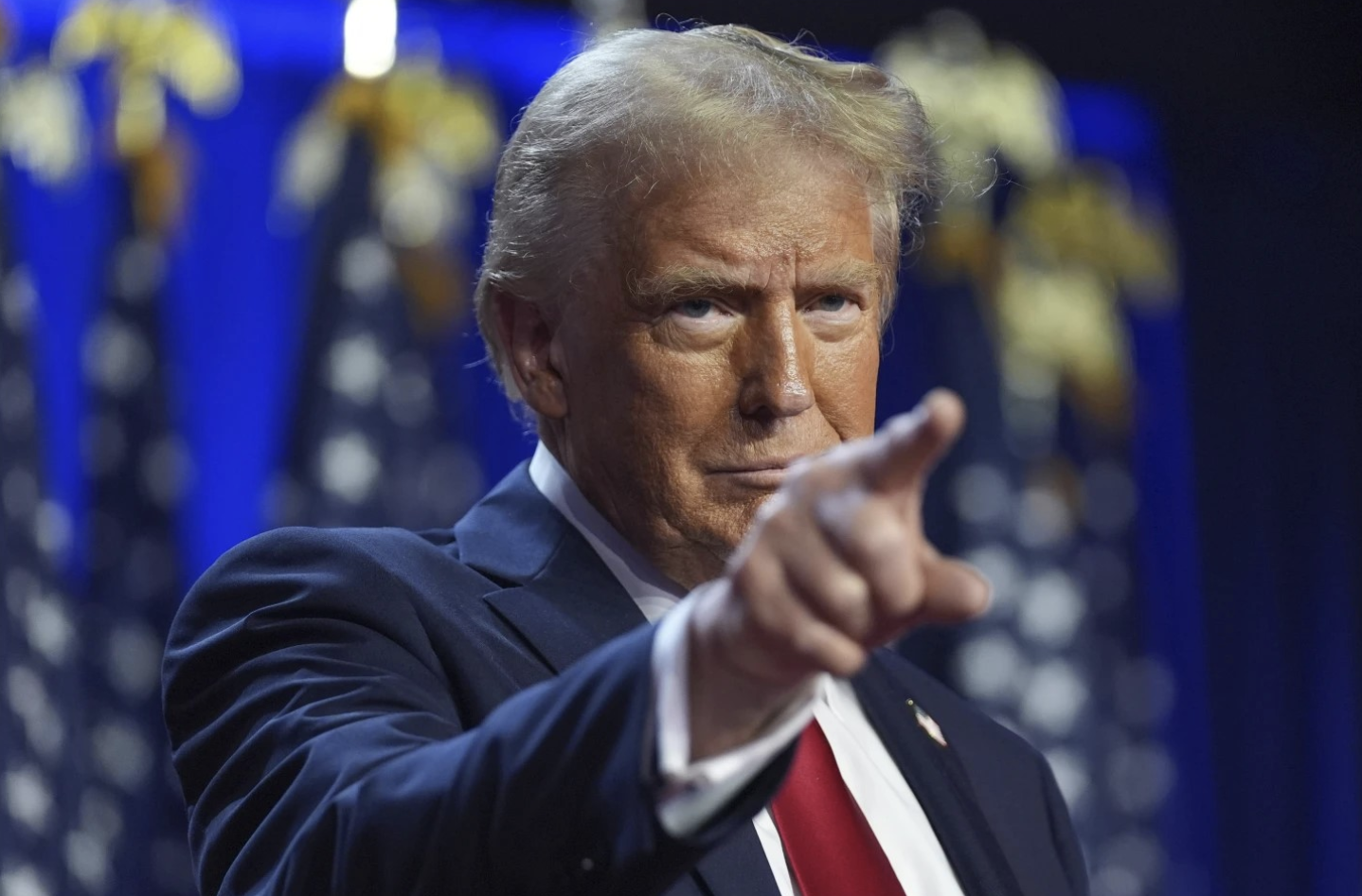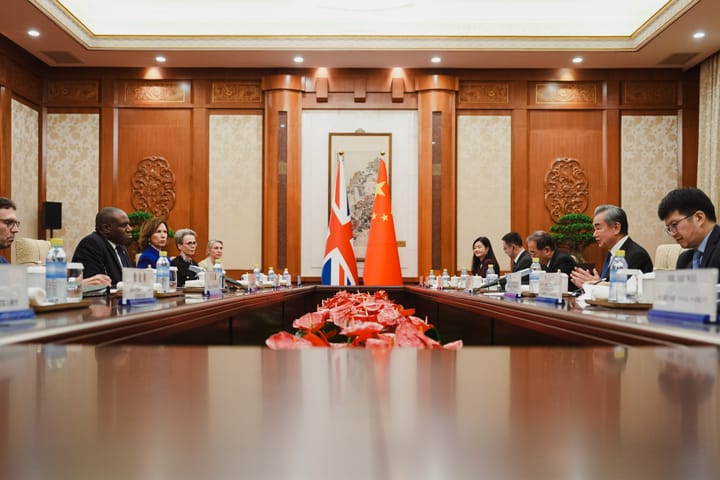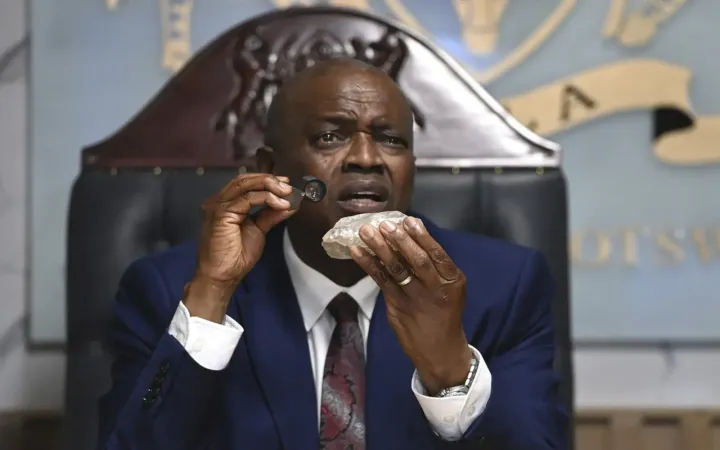What is the Trump Doctrine?

From renaming the Gulf of Mexico to the Gulf of America to withdrawing from the Paris Agreement and World Health Organization, I’m sure most can agree President Donald Trump's actions are certainly unique. With countless other additions to the list — such as immense raises in global, strained alliances with North Atlantic Treaty Organization members and funding withdrawals from numerous humanitarian organizations — it is only reasonable to believe that the United States’ foreign policy is headed in an unconventional direction.
“America First,” a political catchphrase that represents vigorously pushing for anything Trump considers an American interest, is a term often used to define his actions. The Trump Doctrine is a radical break from past U.S. foreign policy, shifting away from the multilateral approaches that have traditionally been seen in presidents. This new doctrine is set to embrace a more nationalistic, unilateral foreign policy. Emerging during his 2016 campaign and to be further solidified during his new term, this doctrine is defined by "America First" policies, economic nationalism and unconventional diplomacy.
During Trump’s first term, American foreign policy was transformed fundamentally, abandoning earlier commitments to international agreements and institutions. Specifically, Trump's administration pursued a protectionist trade agenda, which caused them to retreat from international agreements and prioritize national security through military expenditure and direct diplomacy, according to SciELO. But it’s during his second term that he is executing on many more of his plans.
One characteristic of the Trump Doctrine is its isolationist characteristics from international pacts. Viewing international agreements as unnecessarily infringing upon American sovereignty, Trump has rapidly moved towards isolationism, a stance that has gradually become more accepted in foreign policy circles.
In the past, U.S. engagement has been seen as “not only justified but necessary for the preservation of a stable global order,” according to The Institute for Peace and Diplomacy. This view was strongly developed post World War II that failure in U.S. involvement could risk repeating the war's “international aggression” with Imperial Japan and Nazi Germany. However, advocates for restraint now argue that overreaching U.S. military and diplomatic resources harms America’s domestic interests and can lead to chaos abroad. Due to Trump’s “America First” beliefs in foreign policy, shifting towards isolationism ties into his populist rhetoric, focusing on America’s needs above all else.
This isolationism has been seen in many ways, particularly through drawing from international collaboration. From abandoning the Paris Climate Accord to the Iran Nuclear Deal in his first term to recently threatening to not defend NATO member states from invasion if they don’t pay enough for their own defense, Trump has drastically shifted the country away from customary multilateral engagement. While Trump hasn’t withdrawn from NATO, his actions and rhetoric speak for his distaste for it.
Trump frequently criticized NATO, questioning its relevance and dismissing its value to the U.S. defense. He criticized NATO members for not meeting defense spending targets, suggesting that the alliance was financially burdensome to the U.S. This rhetoric has raised concerns among NATO members about the reliability of U.S. security guarantees, according to the Guardian. Trump is favoring direct, transactional relationships over multilateral alliances.
Trump’s approach to Ukraine mirrored this, as he engaged with Russia to negotiate a ceasefire, sidelining European allies and ignoring Ukraine’s NATO aspirations. He belittled President Zelensky at the White House for not wearing a suit, according to BBC News, and withheld military aid to Ukraine, prioritizing securing rare earth materials from the country rather than supporting its defense efforts. Trump's disregard for NATO and European allies weakened U.S. and European Union relations, leading to European countries taking greater responsibility for their own security, further complicating international order.
Additionally, Trump's economic nationalism saw him create higher trade tensions with China, among others. His administration's aggressive use of tariffs, particularly on Chinese goods, was aimed at addressing unfair trade practices, intellectual property theft and trade imbalances, according to The White House. This has resulted in a trade war between the U.S. and China and has continued to escalate as both nations imposed retaliatory tariffs on each other, disrupting global supply chains and negatively impacting industries such as agriculture, technology, and manufacturing. For example, U.S. agricultural exports to China, including soybeans, faced a 25% tariff, leading to a substantial decline in exports, according to Choices Magazine. In 2024, Brazil accounted for over 70% of China’s soybean imports, a sharp increase from previous years when the U.S. was the dominant supplier. This shift resulted in financial losses for U.S. farmers and loss of market share to competitors like Brazil. This widespread implementation of tariffs has led to a measurable decrease in trade volumes across these industries.
On top of America first economics and isolationism, Trump's direct diplomacy with North Korea's Kim Jong-un was a departure from historic U.S. diplomatic norms. His personal diplomacy was an effort to utilize personal relationships as an instrument to manage U.S. affairs. He is meeting with the leaders of the U.S. adversaries directly in a way unseen before.
Lastly, Trump has constantly been blasting institutions like the United Nations, NATO, and the World Trade Organization for claiming that they were overwhelming the U.S. Decreased financing, strained alliances, and increased tension with longtime world allies resulted from his administration's distrust in these particular organizations. Criticism of these organizations formed his broader nationalist campaign, which argued for reduced American engagement in global governance.
The Trump Doctrine's durability depends on shifting geopolitical realities and future administrations’ foreign policy beliefs. While some elements, such as protectionism in trade and skepticism of international agreements, have become ingrained in American policy following his new term, history tells us time and again that a full-fledged adoption of isolationism will not be sustainable.



